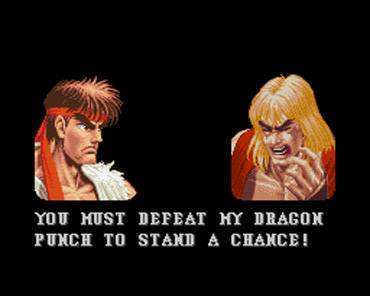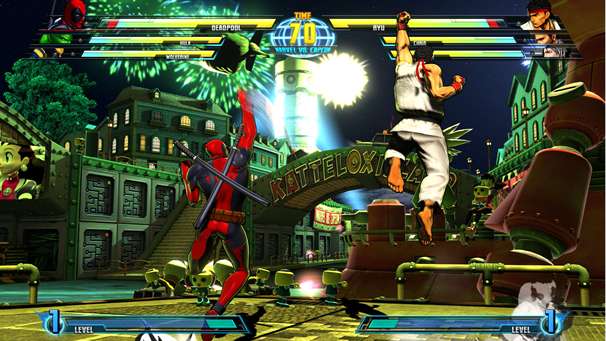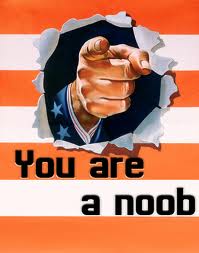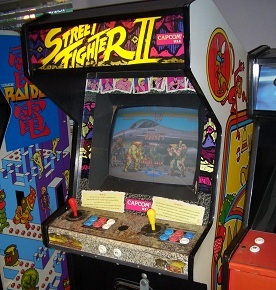There’s something I’ve needed to get off of my chest for a while now: I’m terrible at fighting games.
Ordinarily, this wouldn’t be a problem. Either I should just practice and get better, or I should play something else, right? But it’s not that easy. Though I love the genre, I have neither the time nor the talent to be genuinely good at it.
This didn’t used to be an issue for me. Back in the arcade days of yore, it didn’t take much to be a big fish in a little pond. I was able to take on the folks in my neighborhood at Street Fighter II and hold my own. Because I didn’t live in a huge city or anything, it was easy to believe I wasn’t half bad. And, even better, when I played against my friends at home, we were all pretty evenly matched.
But fast forward a few decades, and the situation has changed drastically. I'll hop online, and I’m toast in seconds. One of the big problems with the recent return of 2D fighters is that now many of us amateurs are seeing for the first time how we stack up against “real” players, and we’re faced with the grim realization that we were never all that good in the first place.
Considering that Justin Wong recently decried Marvel vs. Capcom 3 as “the cheapest and easiest fighting game ever made”, I’m left scratching my head. If MvC3 is so “cheap and easy”, what does it say about me that I suck at it so much?
As one of the most recognizable names in the competitive fighting game circuit, Mr. Wong should know what he’s talking about. His epic matches against fellow champ Daigo Umehara are already the stuff of legend. But his comment shows one of the biggest contradictions among the fighting game elite—and even among all gamers in general. Hardcore players try to keep amateurs out, but a genre can’t survive without fresh blood.
The launch of Street Fighter IV in early 2009 brought a new audience to the genre. A whole new generation was desperate to learn how to FADC with the best. But longtime fighters are a cloistered bunch who speak in their own intensely technical language, trade high level strategies with one another, count frames obsessively, and set up their own regional and international tournaments. Like Shaolin monks living in a small mountaintop paradise, fighting game aficionados see the new hordes at the gate as a threat to their unique way of life, and they fight desperately to retain their elite, meritocratic sensibility.
 What these core fans have forgotten, however, is that it was the unwashed masses that brought the genre to existence in the first place back in the early ‘90s. Without an endless line of noobs with pockets full of quarters, the genre would have been dead on arrival.
What these core fans have forgotten, however, is that it was the unwashed masses that brought the genre to existence in the first place back in the early ‘90s. Without an endless line of noobs with pockets full of quarters, the genre would have been dead on arrival.
In the wake of SFIV, the fighting game genre is still riding high on a wave of popularity, whose flavor of the month is Marvel vs. Capcom 3. Newcomer BlazBlue has now seen two major releases, with another on the way for portables. SSFIV has hit all the casual-friendly mobile platforms—including the 3DS—and SSFIV Arcade Edition is due out for consoles later this year. Even indie games like Skullgirls are now diving into the scene. The genre is seemingly everywhere.
But, now, rather than simply lamenting the influx of noobs, folks like Justin Wong are lamenting the watering down of the genre itself. In an era when gamers are almost as likely to have a fight stick as they are to have a plastic guitar, the fear is now that developers will start “dumbing down” the genre to meet this new audience on its own terms. Like a stronghold of the Hardcore Gaming Army, fighting games are seen by fans as the final bastion standing resolutely against the drooling crowds of one-button casual gamers. And MvC3, it would seem, is at the vanguard of the casual gaming apocalypse.
But does being good at fighting games matter?
I’m currently enjoying the hell out of Marvel vs. Capcom 3, and still putting regular time into BlazBlue: Continuum Shift, but I can easily go through as many as 20 online matchups without a single win. And this is nothing new for me. I put dozens of hours into the first BlazBlue, almost as many into Street Fighter IV and its follow-up, and dozens more into the many re-released classic fighters over the past few years. And my record is consistently terrible in every game. My conclusion: I suck at fighting games. I’ll never get any better, and I’d be lucky to find someone online whom I know I can beat.
But I still love the genre. I regularly watch tournament streams. I watch combo videos religiously. I read up on character strategies and tactics. I practice my execution in training modes. I’ve even given myself a few gray hairs while modding my own fight sticks. And for all that, I still can’t pull together a winning record.
 In the world of fighting games, I’m like the nerdy basketball fan that knows the game and the players inside and out, but can’t do so much as a layup without bloodying himself. But I wonder if there’s not a place in the fighting genre for people like us—people who love to follow it, but who also don’t stand a chance of ever being any good at it. And I can only imagine that as the genre continues to ride its ongoing wave of popularity, there will be more and more people just like me.
In the world of fighting games, I’m like the nerdy basketball fan that knows the game and the players inside and out, but can’t do so much as a layup without bloodying himself. But I wonder if there’s not a place in the fighting genre for people like us—people who love to follow it, but who also don’t stand a chance of ever being any good at it. And I can only imagine that as the genre continues to ride its ongoing wave of popularity, there will be more and more people just like me.
Many newer fighting games let you join lobbies and watch better players fight one another (*cough* unless you’re playing MvC3 *cough*). Some even include the ability to watch in-game videos showing matches by those at the top of the leaderboards. Rather than seeing these features as ways to improve your game, what if we saw these instead as ways to appreciate the game? Unlike other competitive genres—like FPS games—matches in fighting games are exciting to watch without participating.
Rather than retreating to the hills and attempting futilely to preserve the genre from the “contamination” of dirty peons, elite fighting gamers should embrace the new audience. Amateur competition is vital in every sport and non-video game, so why does this staunch elitism persist among hardcore fighting game fans? Professional athletes don’t complain about sports fans playing touch football at local parks or at family gatherings, so why do fighting game aficionados mind so much when amateurs enter the ring?
But maybe Justin Wong meant something else by his comment. Maybe he was speaking only to the handful of folks at the top of the genre. Or maybe MvC3 really is “the cheapest and easiest fighting game ever made”. And maybe I really do suck so much that even a game made for babies is too hard for me. But even if all of these things were true, does that then mean that I should hang up my gloves forever?
 I hope not. Sucking at fighting games is its own unique pleasure, and it’s a pleasure I don’t want to give up. If the fighting game elite want to sequester themselves inside their mountain retreat and never let any but a select few join their ranks, more power to them. But the more people like me that exist in the genre, the bigger the potential audience for those top players.
I hope not. Sucking at fighting games is its own unique pleasure, and it’s a pleasure I don’t want to give up. If the fighting game elite want to sequester themselves inside their mountain retreat and never let any but a select few join their ranks, more power to them. But the more people like me that exist in the genre, the bigger the potential audience for those top players.
The unique thing about being a fighting game fan—even one who sucks as much as I do—is that we love the genre regardless. We’ll happily watch from the sidelines and talk high-level strategy; some of us just can’t execute it ourselves. It’s a fundamental part of the genre’s origins at the arcades when ad hoc tournaments would draw dozens of people to watch a single machine as two players duked it out for the day’s bragging rights.
Without those wannabes standing around watching, shouting, and holding their breath, there would be no one to see the impressive—and occasionally beautiful—techniques on display. Top fighters would forever be a bunch of geeky, mild-mannered Clark Kents with no one ever recognizing their inner Superman.
And maybe that’s exactly the problem. Perhaps underlying that defensive posturing is years of defensive posturing elsewhere in life. It’s a way of turning being dubbed a “video game nerd” into a badge of honor. But the sooner the genre’s hardest of hardcore players start accepting the mainstream audience, the sooner fighting games can truly step up as a serious form of competition—complete with their own nerdy spectators. The mainstream audience is not something to be feared, but embraced.
Besides, I’m no threat. I suck.







